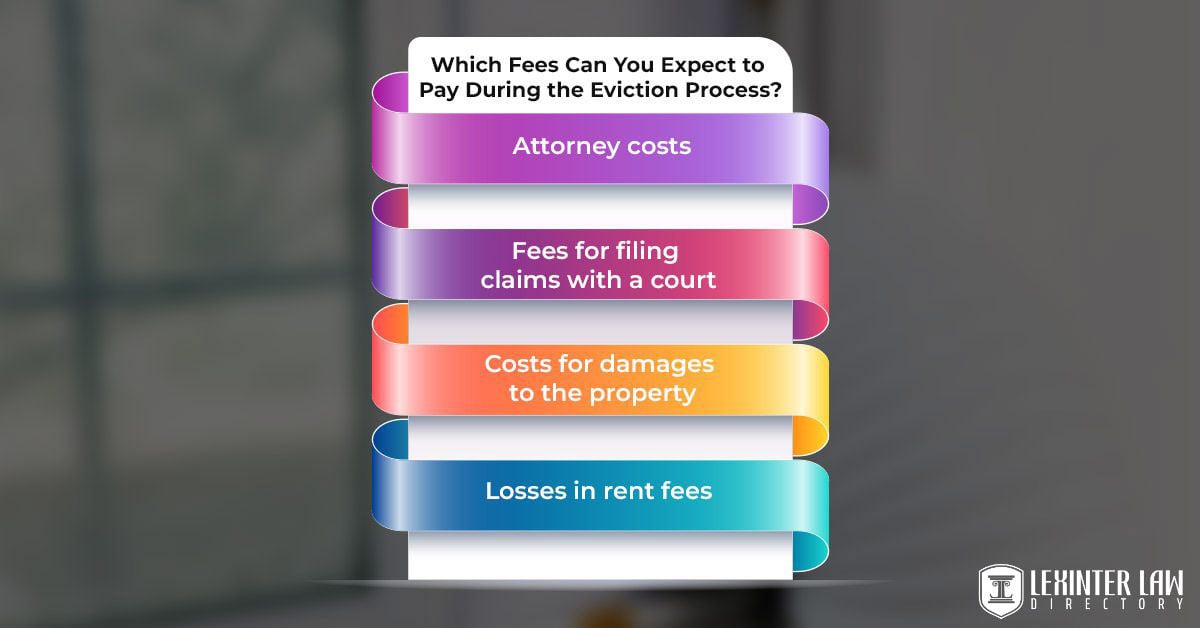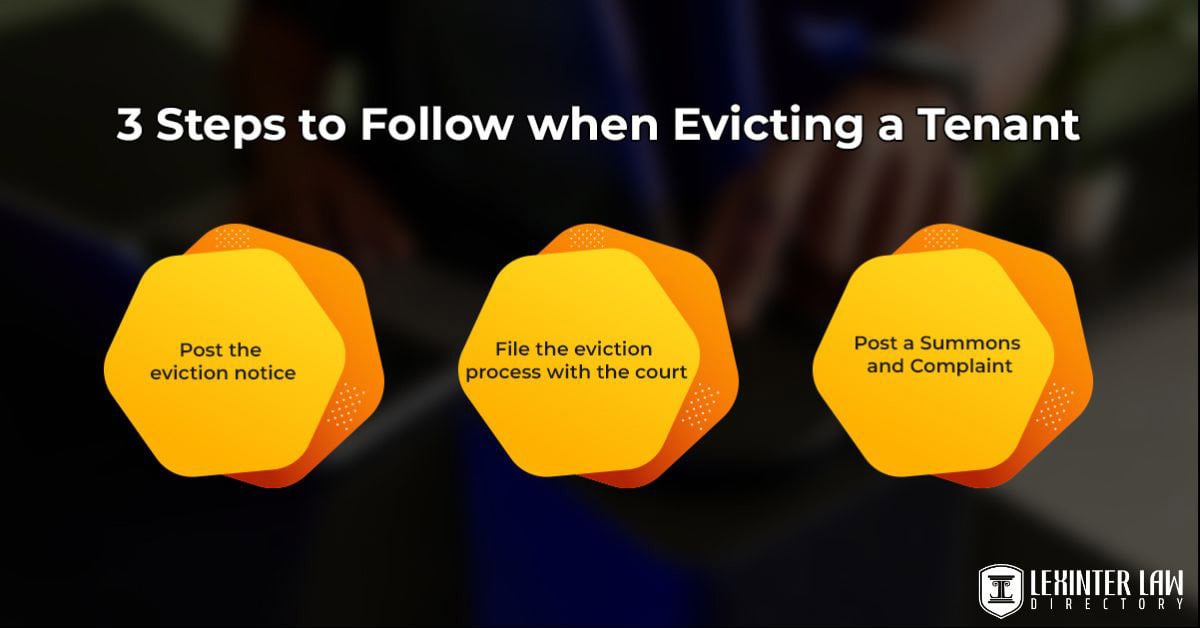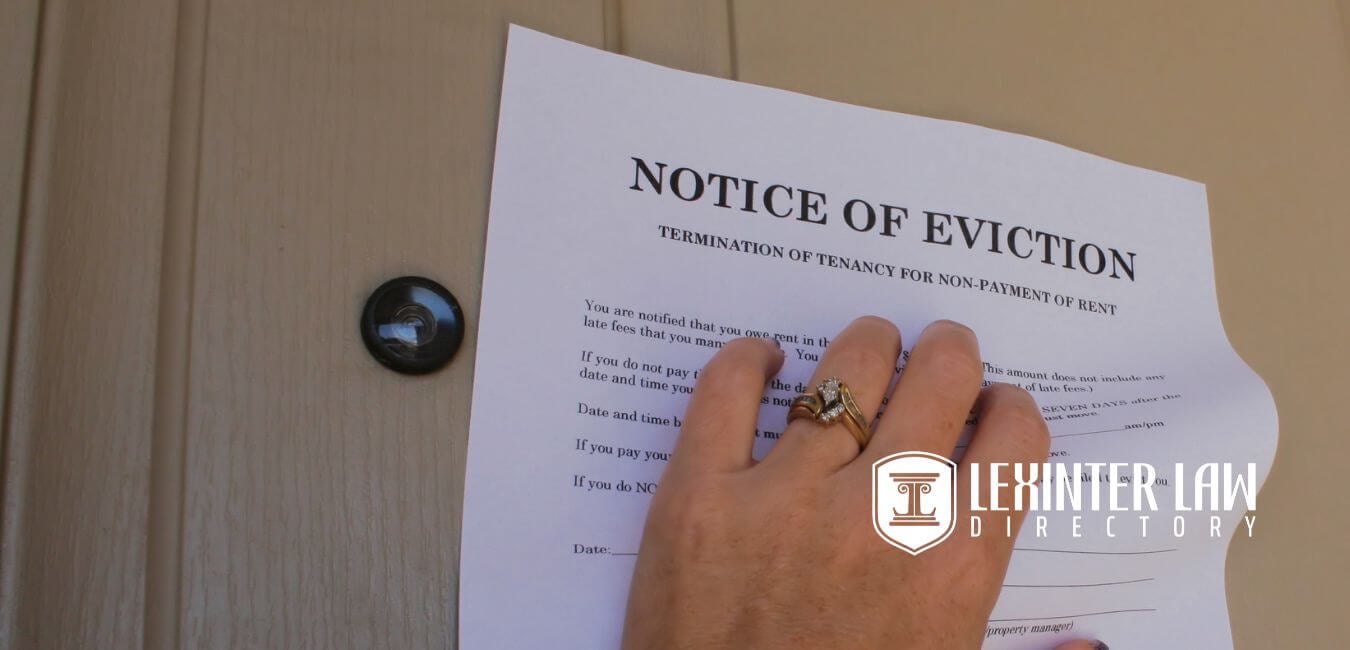How Much Does An Eviction Cost In Florida?
When tenants break their lease or refuse to pay rent, you may have no choice but to file for eviction with the court. Under these circumstances, depending on various factors, you may face steep eviction costs. But how much does an eviction cost, and what critical prices should you consider? Read on for the critical consumer facts and prices related to eviction in Florida.
Table of Contents
- What Is The Cost Of Eviction In Florida?
- Factors Affecting Eviction Costs In Florida
- Avoiding High Eviction Costs In Florida
- Attempting Negotiation With Tenants
- Utilizing Mediation Services
- Understanding Lease Agreements
- Hiring An Experienced Attorney
- What Are Acceptable Forms Of Payment When Filing With The Court In Florida?
- 3 Steps To Follow When Evicting A Tenant
- What Is The Main Alternative To Evicting A Tenant?
- Cash-For-Keys Agreements
- Renegotiating Lease Terms
- Voluntary Move-Out Agreements
- FAQs
- Eviction Cost In Florida: Key Costs To Keep In Mind
What Is The Cost Of Eviction In Florida?
Since various fees can apply to the eviction process in Florida, the overall cost can vary. However, on average, you can expect to pay between $3,000 and $4,000. This cost does not include the rent you will lose.
Which Fees Can You Expect To Pay During The Eviction Process?

There are several fees you must pay during the eviction process. Here is a breakdown of the many fees you may have to cover.
1. Attorney Costs
Since the eviction process must follow the law, you must solicit the services of an attorney and pay attorney costs. Their services will include a comprehensive understanding of the law and critical advice. You can expect to pay an attorney at least $500; however, this can be as high as $2,000.
2. Fees For Filing Claims With A Court
Your first step when proceeding with an eviction process requires filing claims with a court. You must pay a fee to complete this step, and the fee will depend on where you reside. In some states, you may be looking at between $250 and $450. In other states like Florida, the cost will be between $185 and $400.
3. Costs For Damages To The Property
In many eviction cases, a tenant may no longer be so careful when maintaining your property. A lack of property upkeep can also lead to expensive property damage. Damages can be costly; however, the tenant’s security deposit can cover any issues you may encounter when repairing the property.
4. Losses In Rent Fees
Because evictions can take several months, you may find that losses in rent fees are a significant issue. The losses in rent fees will depend on the length of the eviction process, but you may be looking at thousands of dollars in lost rent.
Factors Affecting Eviction Costs In Florida
Many factors, such as the complexity of eviction cases, legal challenges, and tenant compliance, affect eviction costs in Florida. Let’s learn about these factors in detail.
Complexity Of The Case
The complexity of an eviction case in Florida significantly influences the associated costs. Straightforward situations, such as nonpayment of rent, typically incur lower expenses due to minimal legal procedures. In contrast, cases involving lease violations, property damage, or illegal activities are more intricate, necessitating additional legal actions and documentation. This complexity leads to higher attorney fees, increased court costs, and extended timelines, all of which contribute to the overall expense of the eviction process.
Disputes And Legal Challenges
Disputes and legal challenges during an eviction in Florida can make the process expensive and time-consuming. If the tenant decides to contest the eviction, you may face additional court hearings and paperwork. These challenges require more involvement from attorneys, leading to higher legal fees. Court costs can also increase, especially if the case drags on. If the tenant claims wrongful eviction or disputes lease violations, you might need to provide more evidence and attend multiple court sessions.
Length Of Eviction Process
The length of the eviction process in Florida affects how much it costs you. A quick eviction saves money because there are fewer court visits and lawyer fees. If the process takes longer, costs go up. This can happen if the tenant fights back or delays leaving. You may have to pay for more legal help and court time. The longer the tenant stays, the more rental income you lose. Simple cases may finish in a few weeks, but complex cases can take months.
Tenant Compliance With Court Orders
When a tenant in Florida doesn’t follow court orders during eviction, the process can be longer and more expensive. If the tenant refuses to leave after the court says they must, you might need to get a Writ of Possession. This is a legal paper that lets the sheriff remove the tenant. Getting this writ costs money, and you might also have to pay the sheriff’s fees. Plus, while the tenant stays without permission, you’re losing rent and might have to pay for any damage they cause.
Avoiding High Eviction Costs In Florida
Avoiding high eviction costs in Florida starts with good communication and planning. Try negotiating with tenants to solve problems early. Again, you can use mediation services to find quick solutions. This section explains how you can avoid high eviction costs in Florida.
Attempting Negotiation With Tenants
Talking with your tenant can help you avoid high eviction costs in Florida. By discussing issues openly, you might find solutions like payment plans or agreements to move out. This can save you time and money compared to going through a formal eviction process. Open communication also keeps your relationship positive and prevents future problems.
Utilizing Mediation Services
Using mediation services in Florida can help you avoid high eviction costs. Mediation involves a neutral third party who helps you and your tenant discuss issues and find a solution. This process is less formal than court and can be quicker and cheaper. Many Florida courts offer mediation programs for landlord-tenant disputes. By resolving conflicts through mediation, you can save on legal fees and court costs. It also helps maintain a better relationship with your tenant. Mediation focuses on finding a mutually agreeable solution benefiting both parties.
Understanding Lease Agreements
Understanding your lease agreement in Florida is crucial to avoid high eviction costs. A clear lease outlines both your and your tenant’s responsibilities, reducing misunderstandings. Ensure the lease complies with Florida laws, specifying terms like rent amount, payment due dates, lease duration, and maintenance duties. This clarity helps prevent disputes that could lead to costly evictions. Regularly reviewing and updating the lease can address potential issues before they escalate.
Hiring An Experienced Attorney
Hiring an experienced eviction attorney in Florida can save you time and money. They know the state’s landlord-tenant laws well and can guide you through the eviction process smoothly. An attorney ensures all legal steps are followed, reducing the risk of mistakes that could delay the eviction. They can also represent you in court, protecting your rights as a landlord. With their help, you can avoid costly errors and handle difficult tenants more effectively.
What Are Acceptable Forms Of Payment When Filing With The Court In Florida?
Remember that you must pay in U.S. currency when paying court filing fees for the eviction process in Florida. There are a few acceptable methods of payment, including a check in cash with a credit or debit card, a money order, an in-state business check, or a personal in-state check.
3 Steps To Follow When Evicting A Tenant

So, which three steps must you follow when evicting a tenant in Florida? Here are the main processes to consider.
1. Post The Eviction Notice
When you post the eviction notice, ensure you have a legal reason for the eviction. Some legal reasons include non-payment of rent, property damage, or violation of the lease.
Choose the proper notice, which may include a three-day notice to pay (for rent payment), a three-day notice to cure (for resolvable violations), a three-day notice to quit (for unresolvable violations), or a 30 or 60-day notice to quit for ending month-to-month leases.
2. File The Eviction Process With The Court
If your tenant does not meet the deadline, file the eviction with the court and prepare the relevant documents. You will need the rental agreement, your notice document, proof that your tenant received the notice, the rental application, and the ledger.
3. Post A Summons And Complaint
Once you have posted the Summons and Complaint, wait to determine whether your tenant will contest it. If your tenant does not respond, you can request a default judgment, and your tenant will have to pay the fees. A sheriff will then evict the tenant after you receive a Writ of Possession.
If you do not get a default judgment, the trial will begin and last about 20 days. The judge will decide when you and the tenant have provided evidence. If you win the trial, the tenant must vacate the property; if the tenant wins the trial, you must cover the costs of the case.
What Is The Main Alternative To Evicting A Tenant?
The main alternative to evicting a tenant is to try and negotiate with them. This process may involve setting a deadline and informing the tenant to vacate the property by the set date and time. It may include asking the tenant to pay the owed rent or incurred paperwork fees.
If you try all of these steps and find that you cannot agree with the tenant, you may have no choice but to proceed with the eviction.
Cash-For-Keys Agreements
A cash-for-keys agreement is when a landlord pays a tenant to move out voluntarily. This method helps avoid the lengthy and costly eviction process. The landlord offers a set amount of money, and the tenant agrees to leave by a specific date. This approach benefits both parties: the tenant gets funds to relocate, and the landlord regains possession of the property faster. Documenting the agreement in writing is essential to ensure clarity and legal compliance.
Renegotiating Lease Terms
Renegotiating lease terms with your tenant can be a practical alternative to eviction. By discussing and adjusting aspects like rent amounts, payment schedules, or lease duration, you can address issues causing financial strain or dissatisfaction. This collaborative approach helps maintain a positive landlord-tenant relationship and avoids the costs and time associated with eviction proceedings. Open communication and flexibility are key to finding mutually beneficial solutions that allow the tenant to remain in the property under revised terms.
Voluntary Move-Out Agreements
A voluntary move-out agreement is when a tenant agrees to leave the rental property by a specific date without being forced. This mutual decision between landlord and tenant helps avoid the formal eviction process. Such agreements can include terms like waiving unpaid rent or offering relocation assistance. Documenting the agreement in writing is important to ensure clarity and legal compliance.
FAQs
Can Eviction Costs Vary By County In Florida?
Yes, eviction costs can vary by county in Florida. Filing fees, court costs, and sheriff service fees may differ depending on the county. Some counties might charge additional administrative fees. Local rules or processes can also affect the overall expense.
Can Landlords Recover Eviction Costs From Tenants In Florida?
Yes, landlords can recover eviction costs from tenants in Florida, but only if the lease agreement allows it. The lease must include a clause stating tenants are responsible for legal fees and court costs. If the court rules in the landlord’s favor, these expenses are added to the judgment, requiring the tenant to pay.
Are There Penalties For Filing An Improper Eviction In Florida?
Yes, there are penalties for filing an improper eviction in Florida. Landlords who fail to follow legal procedures may face fines, court sanctions, or even dismissal of their case. Improper evictions lead to lawsuits where tenants recover damages, including attorney fees and compensation.
Eviction Cost In Florida: Key Costs To Keep In Mind
Eviction in Florida is not cheap. The most frustrating costs of eviction are lost rent fees and remember that you must pay for an attorney, pay court filing claims, and cover property damage costs.
Always attempt to negotiate with your tenant before proceeding with the eviction process, which may save you critical eviction costs. And don’t forget that with the tenant’s deposit, you may be able to handle many of the costs without much effort.

